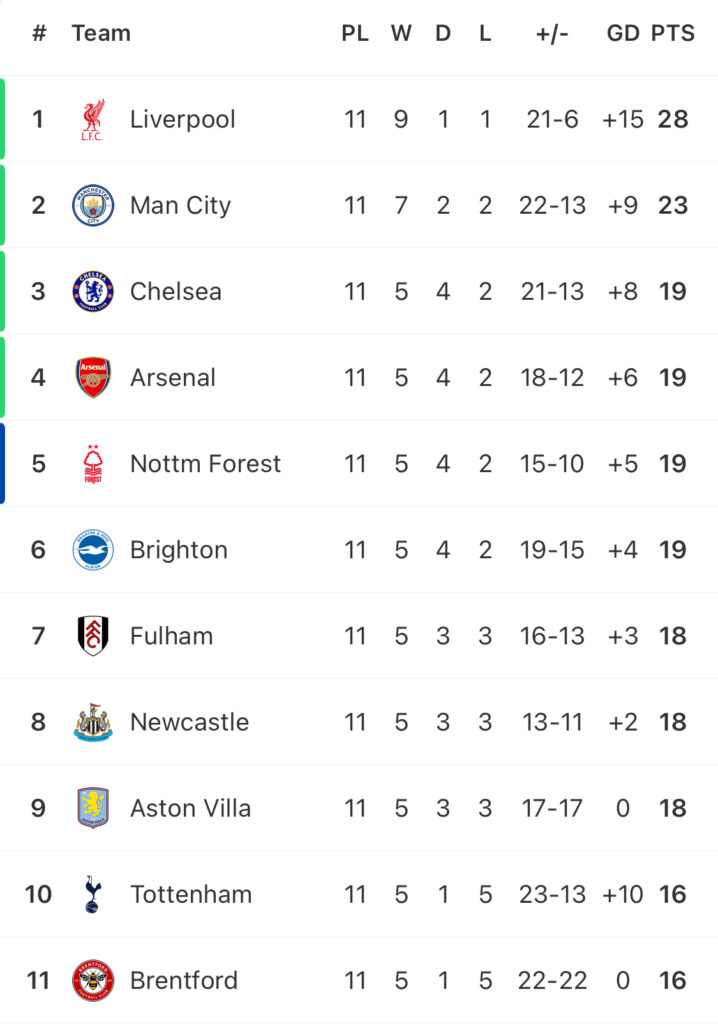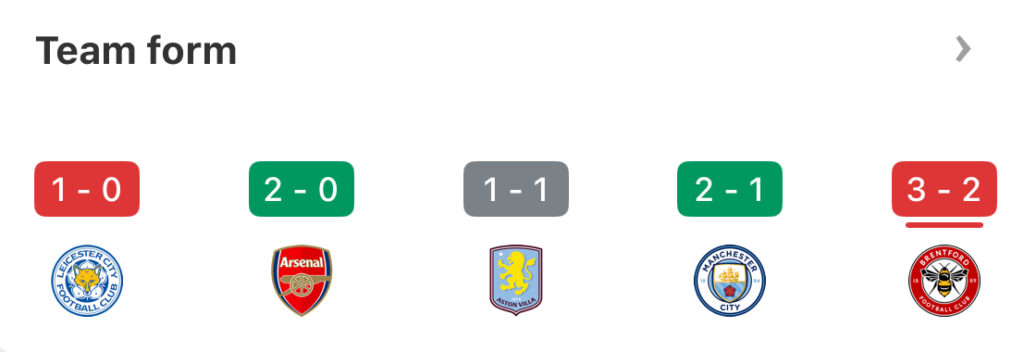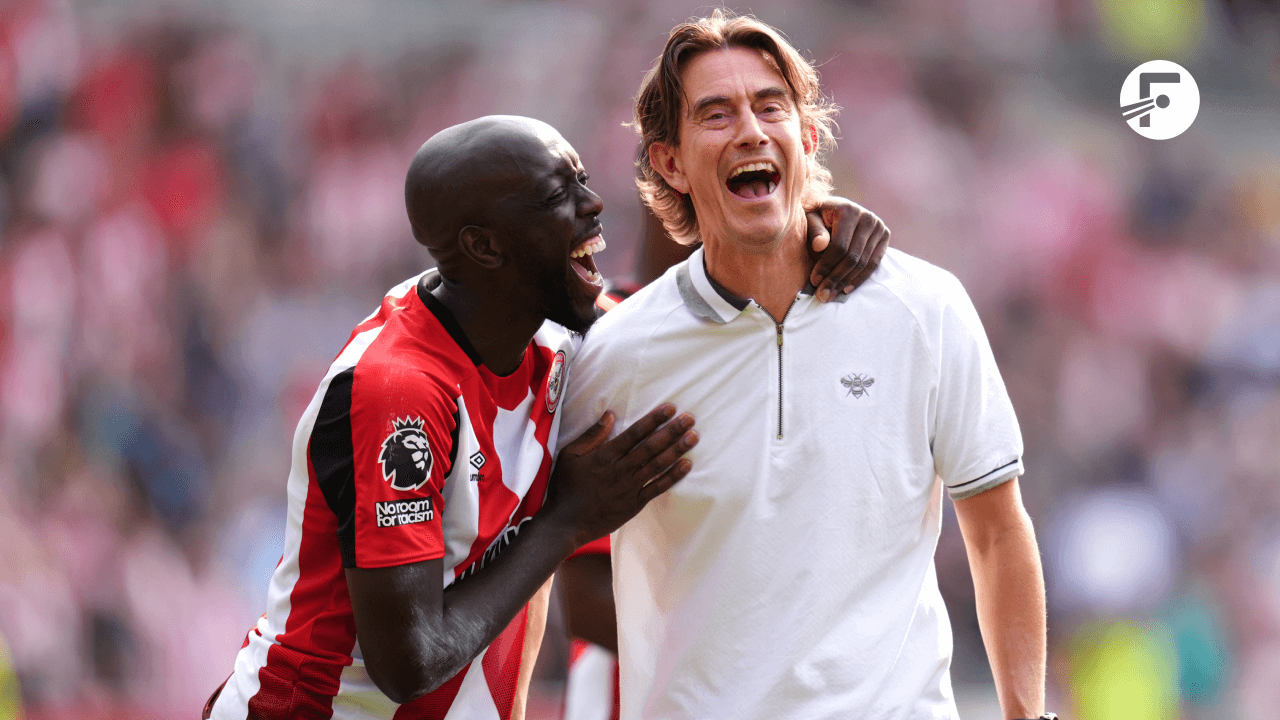The Premier League has taken on an extremely unusual look over the last few weeks or so. It already seems as though the actual title race itself could be a two-horse race, with nine points between leaders Liverpool and third-placed Chelsea.
By Ian King
But from there down, things start to get weird. Just three points separate Chelsea from Brentford, who are in 11th, and just a single point separates them from Manchester United, who are in 13th. For all the talk of ‘crisis’ at Old Trafford, United are only four points off a Champions League place.
So why is this coming about? Is it a trend that might last, or are we just in the middle of a statistical blip that will inevitably fade? Although it’s difficult to demonstrate it empirically, there are possible reasons behind why this could be happening which seem extremely obvious.

Firstly, injuries are taking their toll and big clubs have been missing big players. Manchester City’s recent slump has come about at exactly the same time as their current Ballon d’Or holding midfielder has been out injured. Likewise, Martin Ødegaard has been missing for Arsenal. Both are exceptional and influential players, and neither team has looked quite the same without them.
It may also be the case that the middle order of Premier League clubs is catching up with the bigger clubs, that the social strata of the division is being eroded. When Bournemouth beat Arsenal and Manchester City in successive home games, they won on merit. The days of the only way to beat these teams being to defend for your lives for 90 minutes and try to steal something on the break or otherwise hope that something just lands for you might not have passed, but it certainly feels as though they’re in recession at the moment.

And many of the division’s other clubs seem to be making much better transfer decisions, which may well be down to the proliferation of data available to them. Brighton and Brentford have both demonstrated what’s possible if you use that data wisely. Clubs are also making more imaginative choices for their next managers or head coaches. The days of there being a layer of mediocre English managers below the biggest clubs have also gone.
The upshot of all of this is that, while it would be silly to suggest that they are all very much of a muchness, they have certainly all been taking points off each other so far. With eleven games of the Premier League season, we find ourselves in the extremely unusual position of having nine clubs who’ve won five of them, while a further two have won four. Only the top two have a win rate above 45.45%.
Of course, there are ups and downs within this grouping. Nottingham Forest are the most obvious improvers. For all that their performance at home against Newcastle United last Sunday afternoon felt like a bit of a bump back down to earth, they are deservedly in fifth place. At the other end of the spectrum, Spurs can’t even seem to be consistent within one game at the moment, let alone a run of them and have fallen back to tenth.

And there are names who you might have expected to have seen in this group who are missing from it. West Ham United finished last season in 9th place and won the Europa Conference League the year before, but they’re down in 14th this time around. Crystal Palace always (seem to) finish in 12th place. They’re currently occupying one of the three relegation places.
And since this last week has brought Remembrance Sunday, it’s also worth bringing up that this season has got nothing on the 1914/15 First Division season, when just three points ended up separating the top seven and six points separating the top eleven come the end of the season, with Everton winning the title by a point after Oldham Athletic lost their last two games of the season to Burnley and, of all people, Liverpool.
Of course, the great leveller that year may have been the number of players who left their clubs to fight in the First World War. In 2024 it’s the over-stuffing of the calendar that is leading to the loss of such players as Rodri and Martin Ødegaard for extended periods of time.
Player voices have grown louder against overpacking the schedules to breaking point, but the governing bodies have signed those lucrative broadcasting contracts so we’re getting an eight-game Champions League Swiss-model group stage and a vastly expanded Club World Cup whether we like it or not. That it also happens to have made Nottingham Forest fans happy is just an accidental by-product, and one that we should probably expect to be ironed out again soon.
(Cover image from IMAGO)
You can follow every game from the Premier League on FotMob – with in-depth stat coverage including xG, shot maps, and player ratings. Download the free app here.
